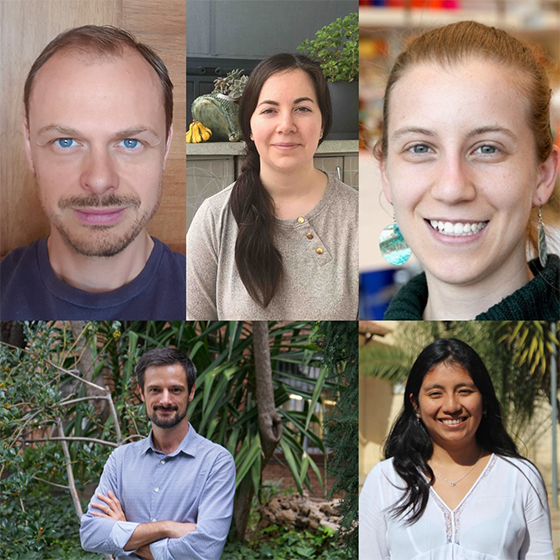We are thrilled to announce the launch of the prestigious Outstanding Early Career Research Award, aimed at recognising and celebrating outstanding contributions to RSC Chemical Biology. This initiative seeks to honour the dedication, innovation, and impactful research of promising early career researchers.
Benjamí Oller-Salvia and his team are such remarkable individuals. In their paper, BrainBike peptidomimetic enables efficient transport of proteins across brain endothelium, Prof Oller Salvia introduced BrainBikes, a novel family of bicyclic protease-resistant peptide shuttles designed to overcome the challenge of delivering protein therapeutics to the brain.
Protein therapeutics face a challenge in reaching the brain due to their low permeability across the blood-brain barrier (BBB). Despite previous attempts with brain shuttle peptides to enhance BBB transport of some therapeutics, effectively transporting protein cargoes remains difficult. In this study, the researchers introduce BrainBikes, a new family of bicyclic protease-resistant peptide shuttles capable of increasing transport of proteins, including antibody derivatives.
Using a trifunctional chemical linker, several bicyclic analogues are generated from a linear peptide targeting the transferrin receptor (TfR1). These analogues show increased metabolic resistance, with one variant, BrainBike-4 (BB4), demonstrating a high affinity for cells with high levels of TfR1. Initially, the researchers demonstrated that BB4 can enhance the transport of a model fluorescent protein by fourfold. Subsequently, BB4 is site-specifically conjugated to a single chain variable antibody fragment (scFv) using a chemoenzymatic approach. Conjugation of BB4 leads to a fivefold increase in the transport of the scFv in a human cell-based model of the BBB.
These results highlight the potential of bicyclic peptidomimetics as brain shuttles and present new opportunities for the transport of biotherapeutics across the BBB.
Meet the team

- Maria Lucana pursued her undergraduate studies in Chemistry at Universitat Autònoma de Barcelona. Currently, she serves as a predoctoral researcher in Bioengineering at IQS – Ramon Llull University. Within the ChemSynBio group, Maria focuses on the development of shuttle peptides and nanocarriers aimed at enhancing therapeutic transport across the blood-brain barrier.
- Roberta Lucchi‘s academic journey began with Biotechnology studies at “La Sapienza” University in Rome. Following an enriching one-year internship at Nippon Kayaku Co. Ltd in Tokyo, funded by the “Vulcanus in Japan” program, she joined Dr Benjamí Oller-Salvia’s laboratory at IQS – Ramon Llull University. Here, she completed her PhD, focusing on the development of stimuli-responsive biotherapeutics, generously supported by an FPU scholarship from the Spanish Ministry of Science, Innovation, and Universities.
- Fabien Gosselet, a distinguished figure in academia, holds the position of full professor at Université d’Artois. He received his PhD training at the Gustave Roussy Institute (IGR) and conducted postdoctoral research at the Blood-brain Barrier (BBB) laboratory (LBHE) in Lens. Since 2015, he has led the BBB Laboratory, delving into crucial areas such as the role of diet in amyloid clearance, relationships between cholesterol, BBB, and Alzheimer’s disease (AD), as well as exploring vectors for crossing the BBB.
- Cristina Díaz-Perlas brings a wealth of experience to the ChemSynBio group at IQS – Ramon Llull University as a Marie Curie postdoctoral researcher. Her academic journey includes PhD studies conducted in Prof. Ernest Giralt’s laboratory at IRB Barcelona, followed by postdoctoral research at EPFL in Switzerland under the guidance of Prof. Christian Heinis. In her current role, Cristina leads the research line on peptide and antibody phage display development, actively contributing to the discovery of efficient transport systems across the blood-brain barrier.
- Benjamí Oller-Salvia is an associate professor at IQS – Ramon Llull University. He completed his PhD in Prof. Ernest Giralt’s laboratory at IRB Barcelona, followed by postdoctoral research with Prof Jason Chin at the MRC LMB in Cambridge. Leading the ChemSynBio group at IQS, Benjamí combines chemical and synthetic biology to explore transport mechanisms across the blood-brain barrier. His research aims to generate smart biotherapeutics targeting brain diseases, generously supported by funding from the European Research Council.
About being awarded by the Editorial Board of RSC Chemical Biology, the winners commented: “We are immensely honoured and proud to receive this award. This prize is a recognition of the hard work and dedication of a wonderful research team that was the seed of the ChemSynBio group at IQS in Barcelona. This award motivates us to continue pushing the boundaries of the challenging field of brain delivery.”
As they continue to push the boundaries of scientific innovation, the possibilities for treating neurological disorders grow ever brighter. With each discovery, they edge closer to realizing their vision of a future where no disease is beyond the reach of effective treatment.
Join us on LinkedIn to celebrate Prof Oller-Salvia and the team!

